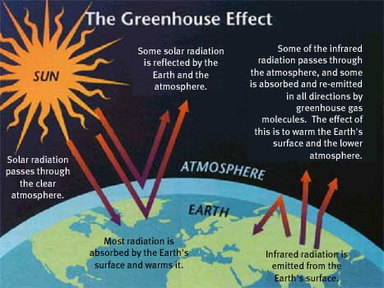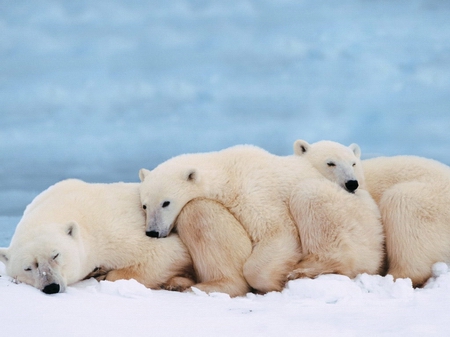世界各国能否联手应对气候变化?
By 苏剑林 | 2009-08-18 | 21477位读者 |笔者:这一次的翻译有点乱,不过先不管这个,说说内容。
会议、会议、会议......关于气候问题的会议不断,但是仍然没有达到一个很好的共识,而气候恶化却在不断地进行中,而且情况越来越严峻。抑制温室效应的其它途径又未成熟......解决气候变化,路在何方?
世界各国能否联手应对气候变化?
目前正在商讨中的一项国际协议,仍然面临着巨大的分歧。
By Paul Voosen
最新一轮的联合国气候会议预备会谈已经在今天结束了,参与者悲哀地表示:进展如此缓慢,也许意味着在今年的12月的哥本哈根会议上不能达成排放量的协议。
“如果失去了这个机会,那么结果将不可思议,”联合国气候变化框架公约的执行秘书长 伊沃·德·布尔(Yvo de Boer)指出。为了能够达成协议,他表示,“在曼谷举行的(下一轮)会议的谈判速度必须要大大加快。”
美国气候谈判代表的领导人 乔纳森·珀欣(Jonathan Pershing)为此发出了警告。“如果我们没有比在这里看到的更多的行动和共识,我们将不会达成任何协议。”珀欣说。
欧盟工作组主席、瑞典的主要气候谈判代表 安德·图勒森(Anders Turesson)表示,虽然仍有很多难题(没有解决),但这一轮的会谈也出现了一点希望之光,比如达成了“谁该做什么”的共识。
“我们现在所讨论的是一场影响深远的工业文明变化,”Turesson表示,“如果没有出现这些‘绊脚石’,我们反而会感到十分惊奇。”
参与者们在德国波恩进行一个星期的会谈,主要目的是减少多达200页的谈判文案中选项的数目。这份谈判文案,充当着1997年的《京都议定书》的后继者的角色,由于意见存在分歧,其中包含着约2000个括号内的“附注”。
“我们好像漂浮在括号的海洋中,” 德·布尔说。经过一周的讨论,这份文案并没有明显缩小。很多争议主要取决于今年秋天美国的参议院能否通过气候法案。珀欣明确表示,美国将会动用所有能够作为立法基础的法律,力求达成碳减排协议。
“我们的重点并不是重复《京都议定书》,”珀欣说,回想起过去的气候条约,美国已经妥协了,但参议院没有批准下来。德·布尔 乐观地表示,众议院通过气候法案后,将看到美国的温室气体排放量比1990年下降百分之十三,但仍然达不到欧盟所承诺的20%的目标。
在最后,欧洲人想要与美国人处于比较的关系,珀欣表示,由于本国内的限制,如何完成目前还不清楚。美国的立场是,要达成一个协议,而不是规定一个满足每个发达国家的削减比例,“应该由国家来决定相关事宜。”珀欣说。对于发展中国家和地区,美国正在寻求一些在目标上不受到法律约束、但在行动上受到约束的方案,珀欣说。其中一个例子是一个量化(指定数目)的承诺,是关于巴西将如何开采森林资源的。
如果发展中国家要限制排放量以适应气候变化,他们会一直寻求来自发达国家的发展资金。但到目前为止,还没有一个发达国家建议,将这个资金的数额提高到100亿美元以上。参与者表示。
同时,按照格林纳达常驻联合国代表、小岛屿国家联盟的女主席 德思玛·威廉姆斯(Dessima Williams)的说法,目前工业国在谈判桌上只是承诺要比1990年减排10-16% 。威廉姆斯指出,如果没有其他变化,这些承诺仍会使温度升高超过3摄氏度。这样的升温程度,远高于上个月在意大利拉奎拉举行的八国集团首脑会议上,所确立的把升温控制在不高于工业化前2摄氏度的目标。
在最近的报告中,政府的气候变化专门委员会确认,比1990年减排百分之二十五到百分之四十是必要的,这样才能够避免最糟糕的气候变化的影响:热浪,洪水,干旱和海平面上升。
这个星期2000多名代表在波恩举行会议。这次会议,这被定为“非正式的”,是最近的导致今年12月在哥本哈根举行的联合国气候变化会议前的一系列准备会议。下一次会议将于9月下旬在曼谷举行,接下来的11月在西班牙的巴塞罗举行。
原文:http://www.scientificamerican.com/article.cfm?id=climate-change-international-negotiations
Can the World Unite to Combat Climate Change?
Ongoing negotiations on an international agreement continue to face significant disagreementBy Paul Voosen
The latest round of preparatory talks for the U.N. climate conference concluded today with negotiators lamenting that the languid pace of talks could mean there won't be a deal on emissions in Copenhagen this December.
"It would be incomprehensible if this opportunity were lost," said Yvo de Boer, executive secretary of the U.N. Framework Convention on Climate Change. For any hope of a deal, he said, "the speed of the negotiations must be considerably accelerated at the [next] meeting in Bangkok."
The United States' lead climate negotiator, Jonathan Pershing, added to the warnings.
"If we don't have more movement and more consensus than we saw here, we won't have an agreement," Pershing said.
Though the problems were many, there were also glimmers of hope in the current round, such as a collective agreement on what should be done, said Anders Turesson, Sweden's lead climate negotiator and chairman of the E.U. working group.
"What we're talking about is a profound change of industrial civilization," Turesson said. "It would be surprising if there weren't stumbling blocks."
The negotiators were wrapping up a week of talks in Bonn, Germany, aimed at narrowing the number of options in the 200-page main negotiating document. This text, which will serve as the basis for negotiations for the successor to 1997's Kyoto Protocol, is currently inundated with some 2,000 bracketed statements highlighting areas of disagreement.
"We seem to be afloat on a sea of brackets," de Boer said. The document has not been significantly slimmed down in the week's discussions.
Much debate hinges on whether the U.S. Senate will pass climate legislation this fall. Pershing made it clear that the United States will use whatever domestic legislation it passes as the basis for its carbon reduction agreements.
"Our focus is not to repeat Kyoto," Pershing said, recalling the climate treaty that the United States helped negotiate but the Senate did not ratify.
The rosiest interpretations of the House's recently passed climate bill would see U.S. greenhouse gas emissions dropping by up to 13 percent from 1990 levels, de Boer said, well below commitments made by the European Union to reduce its emissions by 20 percent.
In the end, Europeans want to be on comparative terms with the Americans, Turesson said. How that will be accomplished is unclear, given the domestic limits the United States faces.
The U.S. position is that the agreement that will emerge, rather than mandating a single percentage cut that will be met by every wealthy nation, "is something [that will be] conceived country by country," Pershing said.
From developing nations, the United States is seeking not legally binding targets but legally binding actions, Pershing said. One such example would be a quantified commitment from Brazil on how it will tackle deforestation.
Developing nations have been seeking financing from developed countries if they are to limit their emissions and adapt to climate change. So far, there has not been one proposal from developed nations that would raise more than \$10 billion a year for such funding, negotiators said.
Meanwhile, the commitments currently on the table from industrial countries will only reduce emissions between 10 and 16 percent from 1990 levels, according to Dessima Williams, the permanent representative of Grenada to the United Nations and chairwoman of the Alliance of Small Island States.
Unless changed, these pledges will lead to temperature change of more than 3 degrees Celsius, Williams said.
Such a temperature increase is well above the goal agreed to by the world's wealthiest nations at the Group of Eight summit in L'Aquila, Italy, last month. There, countries including the United States, Canada and Russia agreed to cap global warming at 2 degrees Celsius above preindustrial levels.
In its most recent report, the Intergovernmental Panel on Climate Change identified a 25 percent to 40 percent cut in emissions from 1990 levels as necessary to avoid the worst effects of climate change: heat waves, floods, droughts and rising sea levels.
More than 2,000 representatives met in Bonn this week. The consultation, which was characterized as "informal," is the latest in a series of meetings leading up to the U.N. climate change conference in Copenhagen this December. Further meetings will take place in Bangkok in late September and Barcelona, Spain, in November.
转载到请包括本文地址:https://kexue.fm/archives/81
更详细的转载事宜请参考:《科学空间FAQ》
如果您还有什么疑惑或建议,欢迎在下方评论区继续讨论。
如果您觉得本文还不错,欢迎分享/打赏本文。打赏并非要从中获得收益,而是希望知道科学空间获得了多少读者的真心关注。当然,如果你无视它,也不会影响你的阅读。再次表示欢迎和感谢!
如果您需要引用本文,请参考:
苏剑林. (Aug. 18, 2009). 《世界各国能否联手应对气候变化? 》[Blog post]. Retrieved from https://kexue.fm/archives/81
@online{kexuefm-81,
title={世界各国能否联手应对气候变化?},
author={苏剑林},
year={2009},
month={Aug},
url={\url{https://kexue.fm/archives/81}},
}















August 18th, 2009
I think it will be better and better.